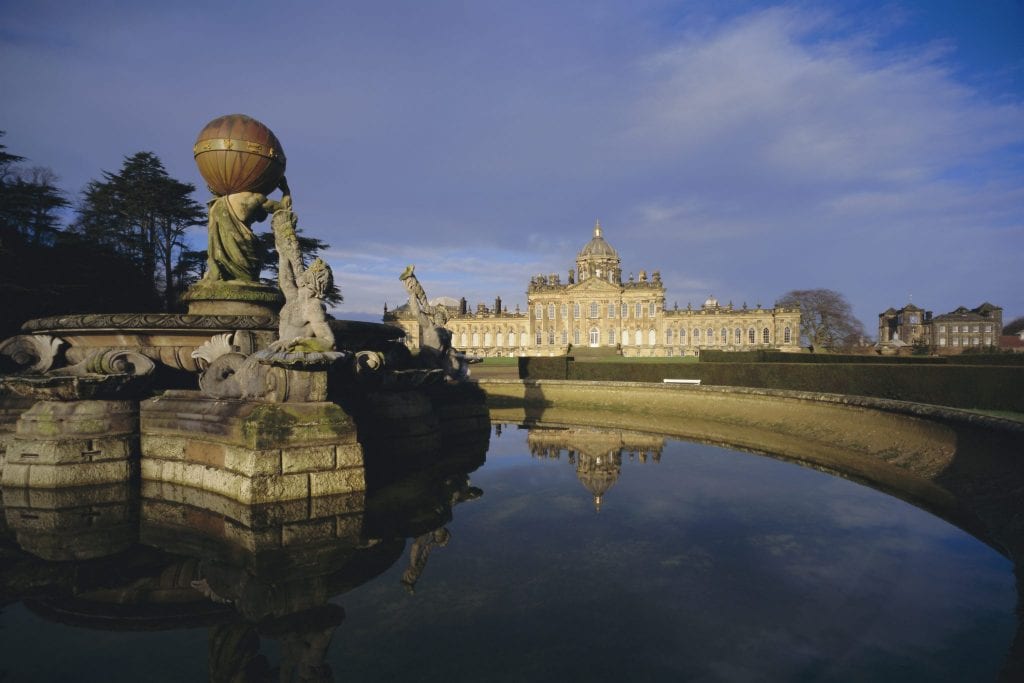Skift Take
If rapid vaccinations stay on track, the head of Britain's tourism arm expects a brighter summer ahead, including pent-up demand for Bridgerton tours. But the recovery for inbound international travel will be slower.
Since the pandemic started a year ago, Europe has been one of the world’s hardest-hit regions. Great Britain, in particular, has faced multiple stop-and-start scenarios that have decimated its travel industry.
A fresh round of border restrictions was implemented at the start of this year to prevent further entry of Covid variant strains, along with 10-day quarantine hotel requirements and jail threats for violators. In the meantime, vaccinations have been rapidly advancing — over 18 million Britons have received the first vaccine dose so far or one in three adults, as the UK now ranks third in the world after Israel and the United Arab Emirates.
This week, the UK government shared the first bit of good news for the country in a while by laying out a recovery plan that could see international travel reopening by May 17.
On the heels of this development, Skift spoke to Sally Balcombe, CEO of Visit Britain for nearly seven years, about her vision for tourism in Britain this year, marketing strategies in light of a shifting travel landscape, the future of travel post-Brexit and what trends are likely to emerge for Britain out of the pandemic. Below is an edited version of the interview.
Skift:
What is your vision for Visit Britain for the year ahead and what do you hope to achieve?
Sally Balcombe: Our forecast was done before the Prime Minister announced his roadmap, but we’re forecasting that domestic travel will recover first, and we will look at about $86 billion (£61 billion) spend in 2021. It’s still only two thirds of the level of spend we saw in 2019, which was $129 billion (£91.7 billion) so we’re recovering, but certainly not to pre-pandemic levels.

Visit Britain CEO Sally Balcombe
With the roadmap that’s just been launched by the government, mid-April is currently when domestic hotels and restaurants and bars, and things can open, which is, you know, the lifeblood of the tourism sector.
What we’re really hoping is the summer is our peak and that everything is fully up and running, but also that the vaccinations continue with the pace we’re doing them. They’re saying every adult in the UK will be vaccinated by the end of July. So if we can achieve anything close to that, we should be able then to have some good domestic recovery through the spring into that summer period.
Internationally it will be slower; even if we open up in May, there’s a lot of work to be done in terms of confidence to travel and routes opening up. So we would really expect it to be more late summer, autumn, with the real recovery coming into into 2022.
Skift: How has your marketing messaging strategy shifted amid the back and forth on restrictions and now a potential reopening of travel in May?
Balcombe: The thing that we are focusing on now and we will focus on in our initial marketing which we hope will be linked to this roadmap, will be all about reassurance. It will be sending the message: it is safe to travel. And that will be partly because we are where we are on vaccinations. It is also because we’ve been very, very successful on a program that we’ve run called “We’re Good to Go” — we’ve got about 45,000 businesses that have signed up to it and that means they have to comply with COVID safety requirements. So we will be really using things like that to tell people it’s safe to travel.
We will then move into a much more sort of proactive, you know, not just making you feel safe, but actually get out there and have some fun and what we will be doing is building on a campaign that we launched last year called Escape the Everyday.
That will be a much more inspirational campaign that will be used first domestically, but then also internationally. Spring: assurance, summer: get out there and escape your every day.
Skift: How is Visit Britain preparing for post-Brexit tourism regulations in creating a seamless experience for EU travelers —do you anticipate any impact or challenges?
Balcombe: So much will not change. Europe is massively important to us. Normally we get about 25 million visitors from the European Union. That’s 61 percent of all of our visits. And they spend about 10.7 billion. We go on many more short haul holidays than we do long haul holidays.
We’re not complacent, we have been taking this very seriously and we’ve been listening, and we’ve been doing lots of research, ever since the referendum in 2016. Our sentiment research shows that for most potential visitors from Europe, Brexit hasn’t affected their decision to travel to Britain for leisure at all, and it’s still seen as a welcoming destination.
For most European visitors, a lot of things won’t change, they don’t need a visa if they’re coming for a holiday. The e-gates will still be there. Now what we will do is we will spend a lot of time making sure those messages get across, reassuring them that not only does everything broadly stay the same in terms of holiday visits, but they are really welcome.
Skift: Do you see new trends emerging and sticking for Britain tourism post-Covid?
Balcombe: Pent-up demand is even greater if there is a family connection or relative so I think there’s going to be a massive need for visiting friends and relatives travel.
Our research shows a lot of people want less crowded places. But what is interesting and maybe slightly counterintuitive to that, is that American travelers still want to visit famous and iconic attractions.
We have COP 26, which is the United Nations climate change conference, in Glasgow in September of this year. And I think as the host country we feel really, really strongly that we have to send out positive messages about what you can do, what is sustainable, lots of the hotels are doing huge amounts in terms of sustainability. So all of that we think is a trend that is definitely going to be a long term trend.
A perennial trend but worth mentioning is TV and film and of course you know what I’m going to say: it’s all about Bridgerton. It’s all shot in the UK in amazing locations some in Greenwich, Castle Howard up in Yorkshire, the Bath, Georgian buildings, and we’re already getting massive demand from the state for Bridgerton tours.
Skift: What has been your greatest lesson thus far as CEO of Visit Britain, leading your office through this challenging time?
Balcombe: I’ve learned something I’ve always known, but it’s really been emphasized — that people are the most important things. So our number one priority through this whole piece has been staff welfare. We have prioritized our people above everything else, so we have held on to a commitment to drive through on a people strategy.
We’ve listened to what’s been going on in the world around things like Black Lives Matter and so we’ve launched a diversity and inclusion group. We’ve given people committed days for development, we’ve given people flexibility for time off because they’ve been home schooling whilst trying to do a job.
We’ve done it because it’s the right thing to do, but we’ve done it so we can do our job. We can only drive tourism, support the industry, do the job we do, we are here to do if we have the best possible workforce in the best possible state, and everybody’s had a tough time, because I’ve got people all over the world. So that’s been the learning, it’s just not a cliché that people are your biggest asset.
The Daily Newsletter
Our daily coverage of the global travel industry. Written by editors and analysts from across Skift’s brands.
Have a confidential tip for Skift? Get in touch
Tags: ceo interviews, destination marketing organizations, dmos, visit britain
Photo credit: There is pent-up demand for Bridgerton tours to filming locations, such as Castle Howard in Yorkshire (pictured). Rob Mcleod/robertharding / Getty Images
